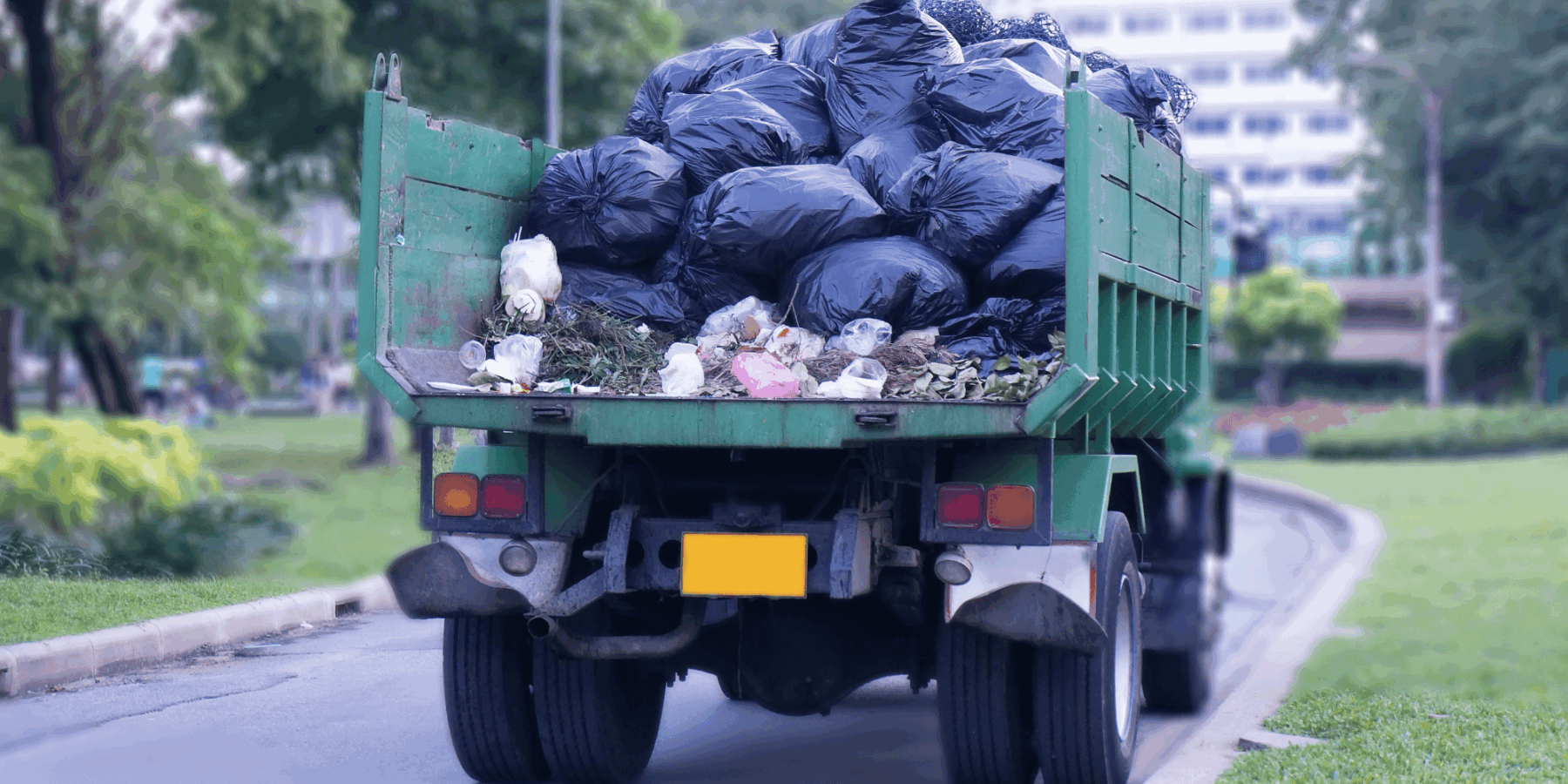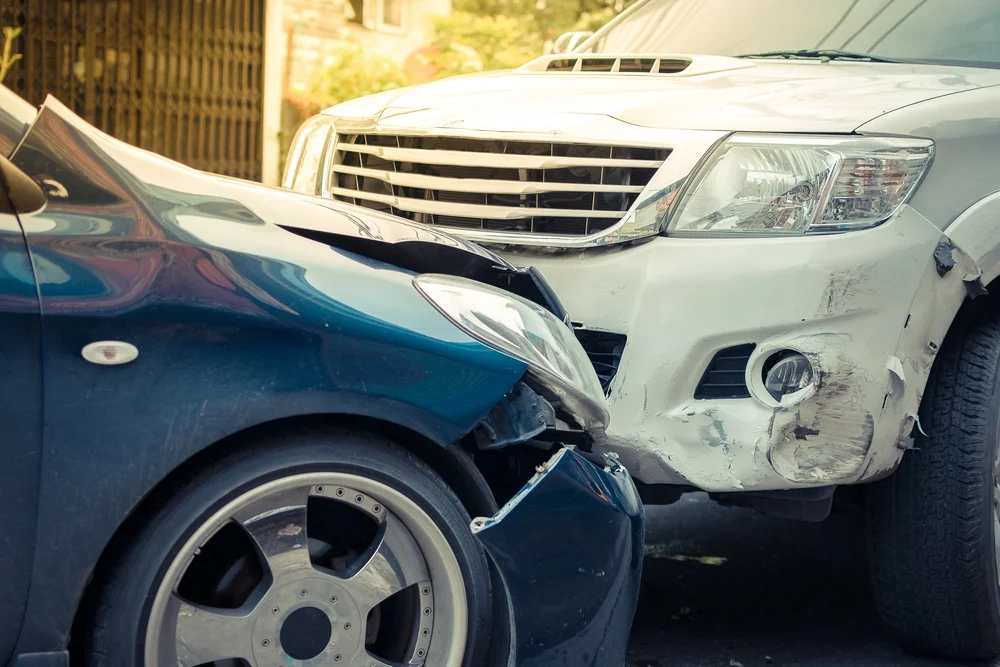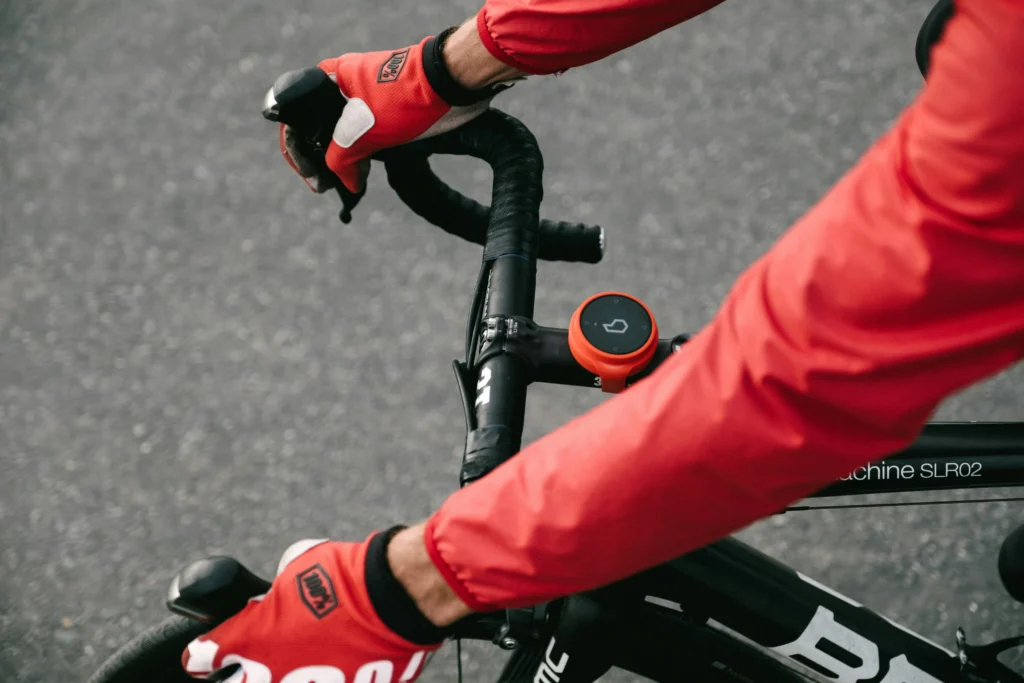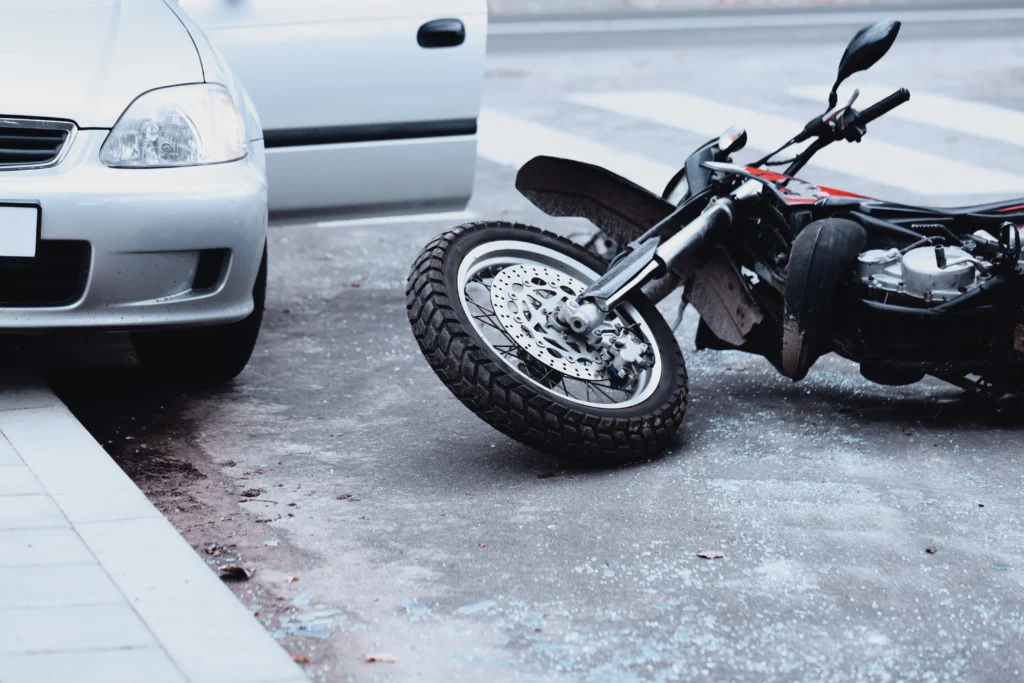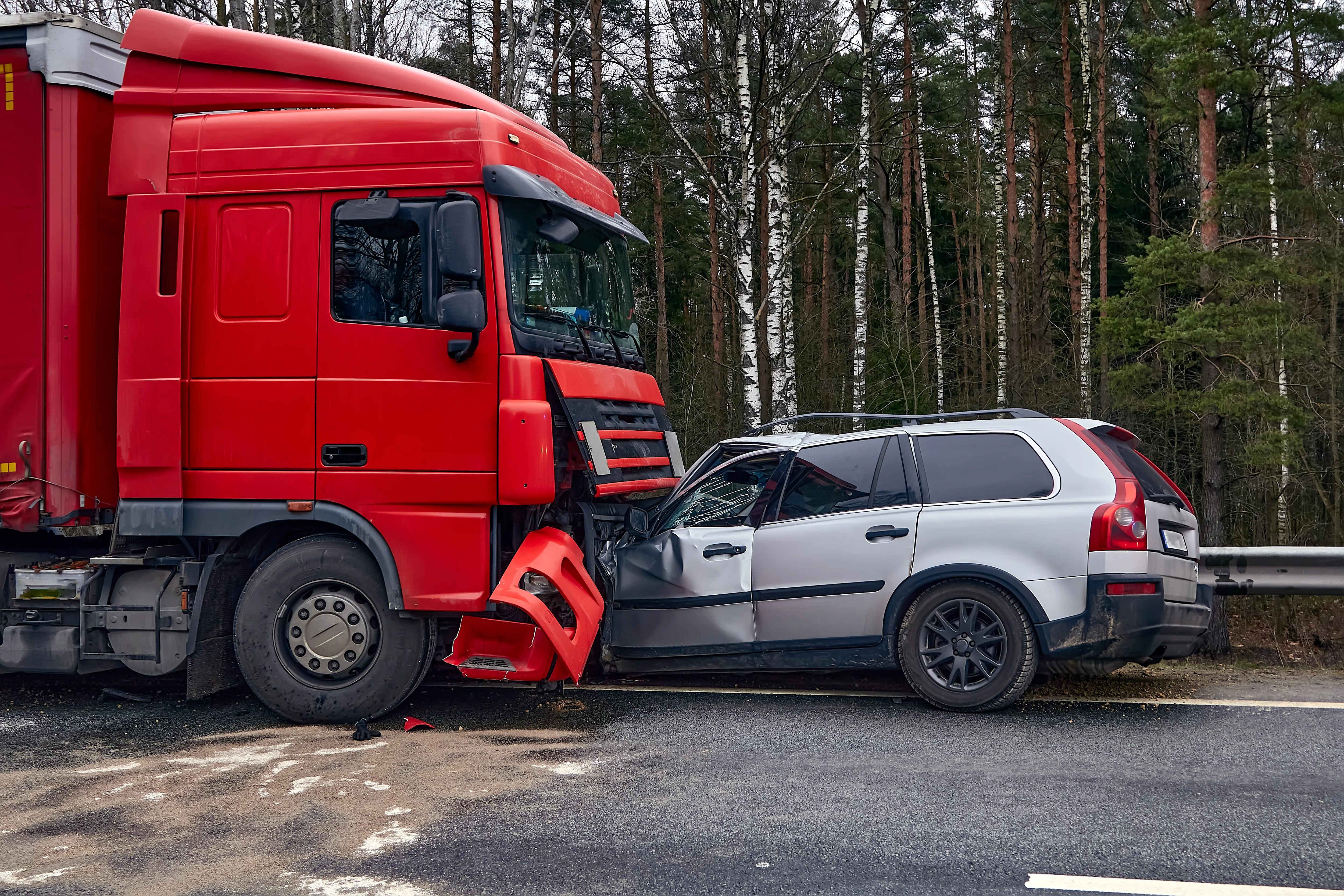Washington Trash Truck Injury Attorneys Serving Seattle, Spokane, and Beyond
Garbage trucks and recycling trucks do more damage than most other vehicles on Washington’s roads. If your car was struck by a municipal garbage truck in front of Spokane’s Garland District or a waste hauler struck you in a neighborhood in Bellevue, the damage can last a lifetime. Such cases demand immediate legal attention. The National Safety Council states that commercial vehicle accidents on sanitation routes tend to be caused by driver fatigue, blind spots, or incorrect backing.
At Bernard Law Group, we don’t allow municipalities or insurance companies determine the outcome. We trigger immediate investigation, save time-critical evidence, and build aggressive cases for recovery. Our lawyers have recovered more than $500 million for injury victims throughout Washington. If you or a loved one was hit by a Washington garbage truck, wait no longer. Call us today at (206) 312-3908 to start your free case evaluation. We deliver services to clients across Seattle, Tacoma, Spokane, and the neighboring towns.
Holding Waste Haulers Liable in Washington Trash Truck Crash Cases
Trash trucks are among the most dangerous vehicles operating on Washington streets. Their size, limited visibility, and unpredictable movement make them a serious risk in residential areas, business zones, and along rural collection routes. When sanitation companies fail to meet basic safety expectations, the legal responsibility falls on them. Washington law permits injured victims to pursue compensation not only from the individual driver but also from the commercial entities overseeing those trucks.
At Bernard Law Group, we aggressively hold corporate waste haulers accountable. Our legal team investigates safety practices, insurance layers, and violations that caused the crash. These companies often operate quietly in the background while denying any liability. We don’t let that continue. Instead, we expose their role and use that evidence to build strong claims for maximum recovery.
Investigating Private Sanitation Companies in Washington Garbage Truck Collisions
Most residential garbage collection in Washington is no longer city-operated. Instead, municipalities contract with large, privately owned waste companies. These firms are responsible for training, maintaining, and supervising their truck drivers. When a crash happens in Seattle, Tacoma, or Spokane, identifying the exact entity that owns and operates the garbage truck is the first critical step.
Bernard Law Group tracks ownership, subcontractor relationships, and employer connections using contracts, fleet records, and Department of Licensing filings. When private waste haulers violate safety regulations, our firm takes immediate action. According to data from the U.S. Bureau of Labor Statistics, refuse collection remains one of the most dangerous occupations in the country, largely due to equipment failures and poor oversight.
Uncovering Negligent Company Practices in Trash Truck Injury Claims
Legal liability often goes beyond the driver. In Washington trash truck cases, the companies that own and manage these fleets are typically responsible for the conditions that led to the crash.
We identify when companies fail to service trucks, ignore driver fatigue, or cut corners on safety inspections. When waste haulers neglect their duties, people get hurt. Using discovery tools, we access safety audits, training records, and injury logs that paint a full picture of how the company operates. These findings make a difference when it’s time to negotiate or take a case to trial.
Linking Employer Oversight Failures to Injury and Damage
When sanitation companies fail to enforce safety standards, they expose drivers, pedestrians, and other motorists to unreasonable danger. Our legal team documents these oversight failures to show the direct link between corporate neglect and personal injury.
In Washington trash truck accident claims, this often includes proving that a driver was underqualified, overworked, or operating an unsafe vehicle. We use documentation from sources like the National Transportation Safety Board to build cases that leave no room for denial. Our goal is simple: hold those at the top accountable for the harm they caused.
Leveraging Commercial Liability Insurance in Washington Garbage Truck Lawsuits
Unlike private drivers, waste hauling corporations typically carry large commercial insurance policies. These policies are designed to cover high-risk operations, including bodily injury and property damage from trash truck crashes.
We don’t just stop at the minimum coverage. Our legal strategy includes exploring umbrella policies, contractor indemnity agreements, and fleet-specific endorsements. These policies often contain hidden language that shifts responsibility to third-party vendors or municipalities. Bernard Law Group knows how to decode and pursue every applicable policy to maximize recovery for victims of Washington trash truck accidents.
How We Pressure Insurance Carriers to Pay Full Compensation
Insurance companies will do everything they can to delay, deflect, or devalue your injury claim. In Washington trash truck cases, these insurers act fast to protect their corporate clients. We act faster.
Bernard Law Group prepares every claim as if it’s going to trial. That means collecting full damage documentation, issuing legal demands, and filing suit when insurers refuse to pay fairly. Our litigation history forces them to take each case seriously. We also gather reports from local agencies and crash reconstructions to support every allegation.
Why Corporate Insurance Policies in Trash Truck Accidents Matter
The average passenger vehicle insurance policy won’t begin to cover the damage caused by a trash truck. That’s why identifying commercial coverage is critical in every case.
Garbage truck companies must carry high-limit liability insurance under state and federal regulations. We pursue those limits when victims suffer long-term injuries, traumatic brain damage, or permanent disability. This includes compensation for lost wages, ongoing care, and emotional trauma. We also frequently handle cases involving city-contracted fleets where the operator and the municipality share liability. For more information on liability rules, visit the Washington State Office of the Insurance Commissioner.
Why Trash Collection Vehicles Create Hidden Hazards on Washington Roads
Washington trash trucks move through tight alleys, crowded neighborhoods, and school zones every day. These oversized vehicles stop often, back up frequently, and turn abruptly without clear visibility. Drivers rarely expect to be in danger during their morning commute or while walking near their driveway. But when a garbage truck operator makes a mistake, the results are often devastating. Collisions like these cause some of the most serious personal injuries across the state.
Bernard Law Group uncovers how these crashes happen and what steps waste haulers failed to take. According to the National Institute for Occupational Safety and Health, sanitation vehicle operators face visibility and motion control issues that directly endanger pedestrians, cyclists, and drivers nearby. We use this data and on-the-ground investigations to build aggressive claims that hold trash collection companies accountable.
Sanitation Routes in Washington Neighborhoods Increase Risk to Pedestrians
Unlike long-haul trucks, garbage trucks operate in the heart of communities. In Washington towns like Kent, Lacey, and Bremerton, collection trucks pass within feet of homes, parked cars, and children playing near the curb.
These routes create daily risk. Blind corners, steep driveways, and narrow shoulders make it difficult for drivers to see. When trucks reverse into crosswalks or swerve around corners, pedestrians pay the price. Our legal team works to collect surveillance footage, witness statements, and city route records to show exactly how the crash occurred. These trucks were never designed for dense suburban infrastructure, yet they move through it constantly.
Reversing and Blind Spots Lead to Serious Trash Truck Injuries
Most garbage trucks lack the turning radius or rear visibility required for safe navigation in residential zones. Many older models do not have 360-degree camera systems or side sensors. The result is frequent backup collisions and side-swipe impacts in low-speed zones.
When trash truck drivers reverse without a guide or strike someone in a blind spot, the crash can involve crushing injuries or death. We identify where those blind zones were and why the driver failed to see the person or vehicle before impact. These cases often involve local collection points like apartment complexes or business strips along busy arterials like Rainier Avenue South or Monroe Street.
Early Morning Routes Contribute to Visibility Hazards and Fatigue
Many garbage truck routes begin before sunrise, often during low-visibility hours or in poor weather. Streets in Everett, Vancouver, and Federal Way become especially hazardous when lighting is poor and pedestrians are hard to see. Rain, snow, and fog further reduce driver awareness.
We regularly handle cases where early morning conditions combined with driver fatigue caused the crash. According to findings from the Sleep Research Society, sleep-deprived drivers show slower reaction times and reduced awareness, even in routine driving situations. In the context of trash truck routes, these lapses have fatal consequences.
Trash Trucks Frequently Collide With Parked Cars and Occupied Vehicles
It only takes one distracted turn or wide swing for a trash truck to collide with a parked car. In many Washington trash truck cases, our clients were either sitting in their vehicle when the truck struck them or suffered injury while standing beside it.
We reconstruct these crashes using physical evidence, including skid marks, damage angles, and braking data. These impacts often happen in cul-de-sacs, alleyways, and near curbside collection points. The truck driver may claim the collision was unavoidable. We use science and legal pressure to prove otherwise.
City and Private Haulers Often Skip Safety Protocols Before Impact
Both municipal fleets and private contractors in Washington must follow protocols before starting collection. That includes walk-around checks, mirror adjustments, and route briefings. When those steps are skipped or ignored, trash truck drivers operate at increased risk to others.
Our firm subpoenas dispatch logs, internal emails, and operator schedules to uncover whether standard safety procedures were followed. We also examine local sanitation contracts to see whether haulers were pushing unrealistic quotas or overtime demands. These findings are key to proving liability in your Washington trash truck crash case.
How Private Waste Haulers Cause Trash Truck Collisions Across Washington
Not every Washington trash truck is city-owned. In many neighborhoods across King, Pierce, and Snohomish counties, private waste hauling companies manage collection routes through public-private agreements. These companies are hired by municipalities to provide routine service, but they often operate with limited oversight. When a private garbage truck causes a crash, injured victims are left navigating corporate liability claims while dealing with serious trauma.
Bernard Law Group represents people harmed by these companies. Whether the crash happened in a tight alley in Tacoma or along a collector street in Olympia, we uncover the breakdown in responsibility. Private haulers must follow federal trucking laws and Washington-specific safety rules. When they fail to do so, we make them pay. A Government Accountability Office review found that outsourced public services, including solid waste management, often suffer from weak accountability and increased safety risks.
Washington Garbage Truck Companies Operate With Limited Public Oversight
Private waste contractors are not held to the same transparency standards as city departments. While municipalities often monitor routes and performance on paper, in practice, these companies self-report. That creates dangerous conditions for Washington drivers, pedestrians, and cyclists.
Our legal team investigates company behavior behind the scenes. We review safety audits, fleet maintenance logs, and driver discipline histories. Many of these haulers operate out of view from city agencies but still make daily contact with the public. When they fail to report safety violations or skip maintenance, we step in and force answers.
Waste Management Firms Must Follow Federal and State Regulations
Companies collecting trash in Washington must comply with the Federal Motor Carrier Safety Regulations and state transportation laws. These rules include hours-of-service restrictions, brake system checks, and load securement requirements. Too often, private waste haulers cut corners.
Bernard Law Group identifies violations by cross-referencing incident reports, route schedules, and federal safety records from the FMCSA Safety Measurement System. These records help us show how private companies ignored obvious risks and endangered local communities. This aggressive approach helps us build strong personal injury claims with deep liability arguments.
Insurance Complications Are Common in Private Trash Truck Claims
Unlike public entities, private garbage truck companies often carry multiple insurance policies. These layers may include general liability, auto liability, and umbrella coverage. But when victims file claims, these carriers often delay or deny coverage altogether.
We don’t let them. Bernard Law Group breaks down each policy, identifies overlaps, and forces commercial insurers to respond. We also pursue policies that may exist under subcontractor agreements or leasing documents. By stacking these coverage sources, we maximize recovery in complex Washington trash truck cases.
Contracts With Cities Do Not Eliminate Private Hauler Liability
Just because a waste company holds a municipal contract does not mean they are immune from responsibility. City officials often assume these contractors meet safety standards, but real-world compliance is rarely monitored beyond paperwork.
In previous cases, our firm uncovered garbage truck crashes where the driver lacked proper licensure or where the truck had not been inspected in months. These failures occurred under the watch of signed city contracts. We hold both the hauler and, when appropriate, the municipality responsible. This dual approach increases claim strength and drives up the value of your injury case.
Equipment Failures and Maintenance Neglect in Washington Trash Truck Accidents
Mechanical failure plays a direct role in many Washington trash truck crashes. These vehicles are heavy, slow to stop, and require frequent service to stay road-safe. When private haulers or municipal sanitation departments skip inspections or delay repairs, the public pays the price. Brake failure, faulty hydraulics, and steering system defects are all known causes of serious collisions across the state.
At Bernard Law Group, we hold waste haulers accountable when equipment failure leads to injury. We investigate the repair history, maintenance logs, and service contracts tied to each garbage truck involved in a crash. The National Transportation Safety Board has repeatedly found that poor fleet upkeep remains a leading factor in large commercial vehicle accidents. We use that data and pair it with aggressive discovery to expose how safety shortcuts led to your injury.
Poor Fleet Maintenance Puts Washington Drivers and Pedestrians at Risk
Trash trucks often operate long hours without being pulled from service. Over time, their brakes wear down, tires degrade, and lifting arms malfunction. When basic service goes undone, the truck becomes a hazard to everyone around it.
In Washington, garbage trucks commonly fail on hilly routes, near residential zones, and during tight turns. These moments are where braking systems and steering components must work flawlessly. When they don’t, our legal team finds out why. We gather maintenance records, manufacturer recall data, and employee complaints to build a comprehensive case against the party responsible for neglecting safety.
Brake Failure and Steering Defects Often Go Ignored
In trash truck injury claims, defective or unmaintained brakes appear frequently in our case files. These trucks can weigh over 50,000 pounds when loaded, making stopping power critical. When operators fail to catch warning signs or companies postpone service, it becomes a deadly risk.
We examine repair orders, fleet management software, and onboard diagnostic reports. These systems often show early signs of wear that companies ignore. If a crash in Renton or Spokane happened because of worn brake pads or steering slack, we prove it and fight for full compensation. According to a study by the Transportation Research Board, mechanical failure is among the top three causes of injury-causing refuse truck accidents in urban settings.
Hydraulic Arm Malfunctions Lead to Crushing and Ejection Injuries
Trash truck crashes do not only happen on the road. Many injury victims are struck by malfunctioning hydraulic arms or side-loading equipment while walking nearby or standing outside their vehicle.
When equipment activates without warning or fails to lock, it can crush a vehicle or eject collected debris. In several cases, we found that operators reported previous issues with the lift system that were never repaired. Our attorneys collect those warnings, document the known defects, and present them as evidence of gross negligence.
Failure to Comply With Manufacturer Guidelines Leads to Liability
Truck manufacturers provide strict maintenance schedules and inspection criteria for each vehicle. When sanitation companies ignore those guidelines, they violate their legal duty to keep the public safe.
Bernard Law Group reviews these technical standards and compares them with service logs from the at-fault garbage truck. We also obtain vehicle condition reports from local government agencies when public fleets are involved. This evidence often proves a pattern of delayed maintenance or skipped inspections that directly caused the trash truck crash.
We Use Industry Data and Maintenance Failures to Maximize Compensation
In Washington trash truck accident cases, proving equipment failure unlocks additional damages. These findings allow us to pursue punitive damages in severe cases and increase the overall case value through commercial liability channels.
Our work does not stop at showing who failed. We calculate the real cost of that failure, including emergency care, long-term rehabilitation, and loss of earning capacity.
Get Legal Help Now After a Washington Trash Truck Collision
Every hour after a trash truck crash increases the chance that critical evidence will be lost. Camera footage is erased. Trucks are repaired. Witnesses stop returning calls. You cannot afford to wait. If a garbage truck struck you, your child, or someone you love, Bernard Law Group will take immediate action. Our legal team has handled high-impact injury claims across Washington and recovered millions for victims hurt by corporate waste haulers, government contractors, and unsafe commercial drivers.
Unlike out-of-state firms or passive negotiators, we build each case with urgency. From the first call, we work to secure inspection reports, police body cam footage, maintenance records, and municipal contracts. We go beyond surface-level facts and uncover the full story behind your Washington trash truck crash. That approach drives real results. We back it with courtroom strength, full investigative resources, and decades of personal injury litigation across King, Spokane, Snohomish, and Pierce counties.
You do not pay unless we win. We do not wait for the other side to play fair. We step in and take control. To begin your free consultation now, call (206) 312-3908. You can also visit us online to learn how we handle large commercial vehicle cases with precision. We take calls 24 hours a day and serve clients in every corner of Washington. Let us fight for your recovery.
Practice Areas
Trust Us With Your Personal Injury Claim
If you or a loved one have been injured, Bernard Law Group will fight for you every step of the way. We will give our all to secure the compensation you rightfully deserve.
Contact usfor a free consultation.
Phone: (206) 312-3908
